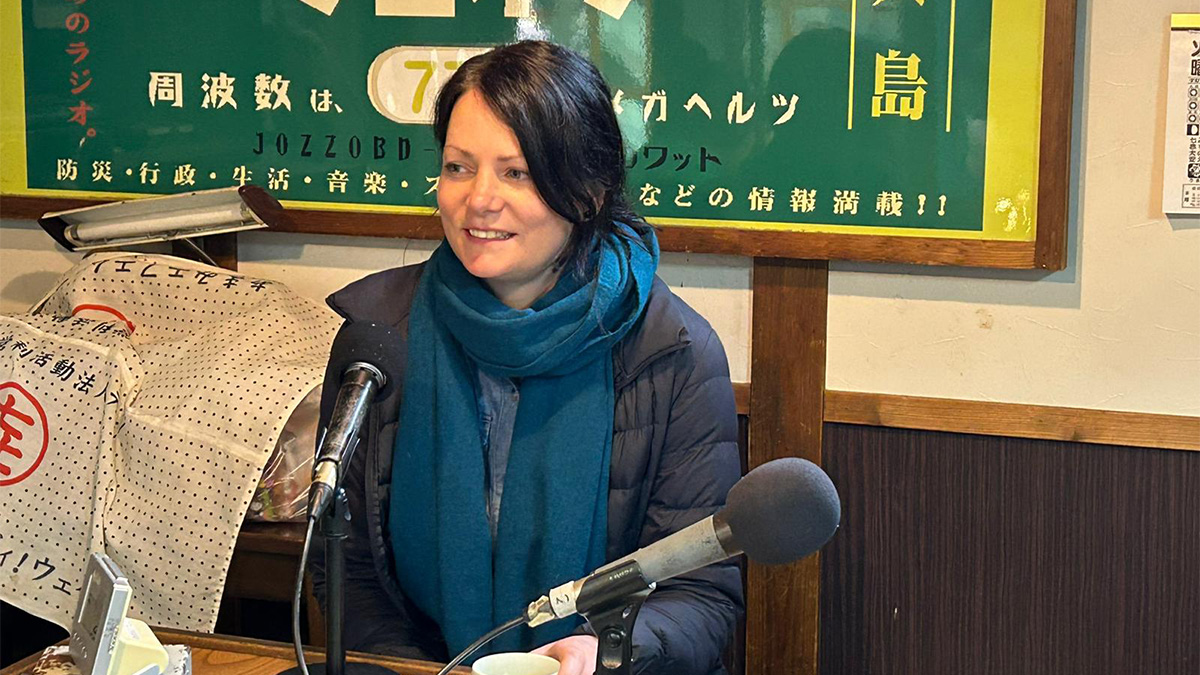UHI Inverness trip to Japan reveals digital media's influence on island life
An academic from UHI Inverness has travelled to Japan to carry out research as part of a joint project on intergenerational relations and communication media in island communities.
Dr Sarah Wagner, a senior researcher at the Centre for Living Sustainability at UHI Inverness, is working in partnership with Professor Tomoko Kanayama at the Institute of Advanced Media Arts and Sciences in Ogaki, Japan on the project Participatory arts and digital engagement: Learning from island communities in Scotland and Japan.
Its aim is to develop a programme of creative and collaborative research with island communities to build insight into how internet media can play a meaningful role in intergenerational community projects. Their findings will be published in an academic paper.
Dr Wagner and Professor Kanayama received a small grant from The Royal Society of Edinburgh. It funded Dr Wagner’s trip in March to join Professor Kanayama in the subtropical Amami Islands in Japan to host workshops exploring changing community communication practices and relationships with the land, involving poetic inquiry and photo storytelling. She said:
“Our research found that the strong intergenerational relationships in communities today are helping to revive Amami languages.
“Younger generations can understand their grandparents when they speak the local language, which varies significantly not only between islands but also between communities and villages on each island. In our workshops, we saw how creativity can be sparked through intergenerational collaboration which can bring about new ways of using the local languages and engaging with traditional cultural assets, bringing these to life for younger generations.
“We had an opportunity to visit community FM radio stations on the main island, Amami Oshima, which are playing an important role in supporting local community and cultural activities, and often involve community members across the ages in their programming.”
Dr Wagner’s project with colleagues in Japan began as a knowledge exchange initiative funded by the Daiwa Anglo-Japanese Foundation. Prof Kanayama and colleague, Associate Professor Akiko Ogawa from Nagoya University, visited the Centre for Living Sustainability at UHI Inverness for a week-long exchange in September 2023. The RSE funded project will address key challenges that were identified during this initial exploratory work.
Dr Wagner said:
“Our work involves narrative interviews and focus groups with community members across the ages developing insight into diverse standpoints for digital communication. The findings will be used to inform an academic paper on the tactical uses of digital media in intergenerational creative projects, and for a community arts virtual exhibition that will weave together poems, narratives and photography, developing intergenerational and intercultural dialogue.
“While internet media is often thought to support social inclusion by enabling increased access to information and providing opportunities for marginalised communities to ‘talk back’, significant challenges can arise when internet media is used in community projects, including incongruencies with local communication practices and cultural aims.
“Information and communication technologies become meaningful when users can effectively engage with them and transform them to suit their needs and wants. The project aims to explore changing digital, natural, and cultural landscapes in island communities, providing a basis for further research.”
Dr Wagner’s research interests lie in applying critical and creative methods to develop understanding on the mechanisms of social inequalities, particularly in relation to digitalisation/datafication.
Her trip was one of 60 exceptional research projects that were selected at the autumn 2023 Research Awards open call to receive a total of £727,752 in funding grants from the RSE.
RSE Vice President, Research, Professor Anne Anderson OBE FRSE said:
“These awardees will help to advance our knowledge, address global challenges, and contribute positively to Scottish society.”
